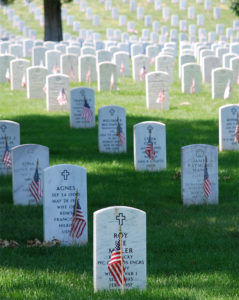
Have a fun Memorial Day weekend
 Memorial Day is a federal holiday in the United States for remembering the people who died while serving in the country’s armed forces. The holiday, which is observed every year on the last Monday of May, originated as Decoration Day after the American Civil War in 1868, when the Grand Army of the Republic, an organization of Union veterans founded in Decatur, Illinois, established it as a time for the nation to decorate the graves of the war dead with flowers. By the 20th century, competing Union and Confederate holiday traditions, celebrated on different days, had merged, and Memorial Day eventually extended to honor all Americans who died while in the military service. It typically marks the start of the summer vacation season, while Labor Day marks its end.
Memorial Day is a federal holiday in the United States for remembering the people who died while serving in the country’s armed forces. The holiday, which is observed every year on the last Monday of May, originated as Decoration Day after the American Civil War in 1868, when the Grand Army of the Republic, an organization of Union veterans founded in Decatur, Illinois, established it as a time for the nation to decorate the graves of the war dead with flowers. By the 20th century, competing Union and Confederate holiday traditions, celebrated on different days, had merged, and Memorial Day eventually extended to honor all Americans who died while in the military service. It typically marks the start of the summer vacation season, while Labor Day marks its end.
History of Memorial Day
The practice of decorating soldiers’ graves with flowers is an ancient custom. Soldiers’ graves were decorated in the U.S. before and during the American Civil War. A claim was made in 1906 that the first Civil War soldier’s grave ever decorated was in Warrenton, Virginia, on June 3, 1861, implying the first Memorial Day occurred there. Though not for Union soldiers, there is authentic documentation that women in Savannah, Georgia, decorated Confederate soldiers’ graves in 1862. In 1863, the cemetery dedication at Gettysburg, Pennsylvania, was a ceremony of commemoration at the graves of dead soldiers. Local historians in Boalsburg, Pennsylvania, claim that ladies there decorated soldiers’ graves on July 4, 1864. As a result, Boalsburg promotes itself as the birthplace of Memorial Day.
Following President Abraham Lincoln’s assassination in April 1865, there were a variety of events of commemoration. The sheer number of soldiers of both sides who died in the Civil War, more than 600,000, meant that burial and memorialization took on new cultural significance. Under the leadership of women during the war, an increasingly formal practice of decorating graves had taken shape. In 1865, the federal government began creating national military cemeteries for the Union war dead.
The first widely publicized observance of a Memorial Day-type observance after the Civil War was in Charleston, South Carolina, on May 1, 1865. During the war, Union soldiers who were prisoners of war had been held at the Hampton Park Race Course in Charleston; at least 257 Union prisoners died there and were hastily buried in unmarked graves. Together with teachers and missionaries, black residents of Charleston organized a May Day ceremony in 1865, which was covered by the New York Tribune and other national papers. The freedmen cleaned up and landscaped the burial ground, building an enclosure and an arch labeled “Martyrs of the Race Course”. Nearly 10,000 people, mostly freedmen, gathered on May 1 to commemorate the war dead. Involved were about 3,000 school children, newly enrolled in freedmen’s schools, as well as mutual aid societies, Union troops, black ministers and white northern missionaries. Most brought flowers to lay on the burial field.
David W. Blight described the day:
This was the first Memorial Day. African Americans invented Memorial Day in Charleston, South Carolina. What you have there is black Americans recently freed from slavery announcing to the world with their flowers, their feet, and their songs what the war had been about. What they basically were creating was the Independence Day of a Second American Revolution.
However, Blight stated he “has no evidence” that this event in Charleston inspired the establishment of Memorial Day across the country.
On May 26, 1966, President Johnson signed a presidential proclamation naming Waterloo, New York as the birthplace of Memorial Day. Earlier, the 89th Congress had adopted House Concurrent Resolution 587, which officially recognized that the patriotic tradition of observing Memorial Day began one hundred years prior in Waterloo, New York. Other communities claiming to be the birthplace of Memorial Day include Boalsburg, Pennsylvania, Carbondale, Illinois, Columbus, Georgia, and Columbus, Mississippi. A recent study investigating the Waterloo claim as well as dozens of other origination theories concludes that nearly all of them are apocryphal legends.

